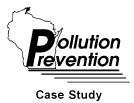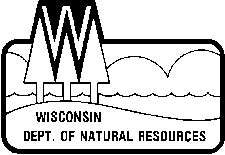
|
Terry Printing
Reduction of VOC Emissions Through
Substitution of Petroleum-based Inks With an Ink Derived from Soybeans |
| Standard Industrial Classification
(SIC) |
Commercial printing/2752 |
| Type of Waste |
Volatile Organic Compound (VOC) air
emissions and non-hazardous solid waste |
| Strategy |
Material Substitution |
| Company Background |
Terry Printing, Inc. of Janesville is a
family owned, full-service, commercial sheet-fed printer established over 50 years ago.
The company produces instruction manuals, sell sheets, catalogs, brochures, annual
reports, and greeting cards. The company currently employs 35 people on a full-time basis.
In 1990 the company received the Governor's Award in Wisconsin for hazardous waste
reduction. |
| Original Process |
Petroleum-based inks were used in all of
the company's printing operations. |
| Motivation |
Terry Printing first became familiar with
soy-based inks in the late 1980's through a Wisconsin advertising firm that inquired about
soy ink. This advertising firm worked closely with agribusiness clients that sold soybeans
and had heard of soy ink. The firm requested that its newsletter be printed with the soy
ink. At that time it was virtually impossible to find a sheet-fed printer in the Midwest
familiar with soy ink. Terry Printing contacted a developer of soy heat-set inks that was
doing extensive lab work on soy inks for sheet-fed use. This resulted in the development
of a soy ink with dry time and gloss (or rub) characteristics reported to be comparable to
most conventional sheet-fed inks. |
| Pollution Prevention Process |
In 1989 Terry Printing replaced its
petroleum-based inks with a soy-based ink for use in all of its printing operations. Terry
Printing was one of the first sheet-fed printers in the state of Wisconsin to use soy ink. |
| Material/Energy Balance |
The ink manufacturer supplying the company
has determined that the soy-based inks reduce ink VOC content and emissions by 65-85%.
This reduction was determined by heating the formulation in a vacuum oven at 110 degrees
centigrade for one hour and measuring the decrease in formulation weight (EPA method
24/ASTM method D-2369). |
| Economics |
Capital Costs
The new ink did not require any purchases or conversions of equipment for adoption.Operation/Maintenance Costs
Terry Printing does not pay more for the soy ink than traditional petroleum-based inks.
The company attributes this to the good relationship they have with their ink vendor.
Payback Period
Not applicable. |
| Benefits |
The benefits of using soy inks include
reduction of VOC air emissions and easier and faster cleanup. Ink manufacturers are now
producing the soy-based color and oil inks with non-toxic pigments and additives. |
| Obstacles |
The major concern with the use of soy-based
ink is with the longer drying time. Unlike newspaper inks that dry by absorption and
evaporation, sheet-fed inks dry by oxidation. To address this problem, the ink supplier
has developed a proprietary formulation of soy ink, petroleum oil, and dryers. |
| Other Pollution Prevention
Activities |
The company has implemented a paper
recycling effort which has resulted in an estimated 80% reduction of paper and related
solid wastes. Terry Printing uses recycled paper whenever possible and recycles all
in-house paper (approximately 3 tons/week). Terry Printing is also recovering silver from
negatives used in the printing process, thereby saving an estimated 6-10 ounces of silver
for recycling every 6-8 months. The silver is acquired through a filtration system that
contains magnetized brillo-like brushes that collect the silver and other heavy metals
from the wastewater. Terry Printing uses aqueous plates (for the presses) made of
environmentally benign materials. These aqueous plates and film are also recycled. |
| Company Address |
Terry Printing, Inc.
1212 Plainfield Avenue
Janesville, Wisconsin 53545 |
| Contact Person |
John Meyer, Director of Marketing &
Sales
608/752-1517 |
| Additional Publications |
Publications on the printing and Publishing
Industry are available from the Pollution Prevention Information Clearinghouse. |
| Pollution Prevention Resources |
Free, On-site Technical Assistance
University of Wisconsin Extension
Solid and Hazardous Waste Education Center
Milwaukee area: 414/475-2845
Remainder of state: 608/262-0385Pollution Prevention
Information Clearinghouse
Wisconsin Department of Natural Resources
Hazardous Waste Minimization Program
608/264-8852, 608/267-9523 or 608/267-3763 |
 |
Bureau of Cooperative Environmental Assistance
Wisconsin Department of Natural Resources
P.O. Box 7921
Madison, WI 53707
608/267-9700
PUBL-TS-029 95 |
|

